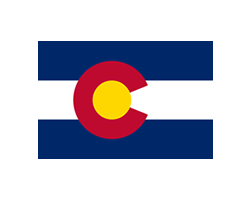
Egg freezing, also known as mature oocyte cryopreservation is a new technique that allows women to preserve their reproductive potential for later. Just like its name, the process involves harvesting a woman’s eggs from the ovaries, freezing the unfertilized eggs, and storing them somewhere safe until it’s time to be used.
Reasons for egg freezing.
Egg freezing is an option in many situations:
-for women who would like to delay having children until later
-for women undergoing treatment such as chemotherapy; or diagnosed with illnesses that may seriously affect one’s fertility. Egg freezing before the treatment saves their eggs, giving them a chance to bear their biological children later on
-for women with ovarian disease, or who need to have it removed
-for women undergoing IVF (in vitro fertilization)
Explaining a woman’s egg supply and her biological clock. Unlike men, we women are born with all the egg supply we are ever going to have in our entire lifetime. At birth, we have around two million eggs. By puberty, we have three to four hundred thousand eggs left. Every month during menstruation, we release around one thousand eggs, leaving them to die, unless fertilized. All remaining unused eggs expire naturally at menopause. By the late 30s, our fertility starts to drop, we run out of eggs, plus our egg quality decreases, leaving us with smaller chances of getting pregnant naturally. But science changed all that.
Egg Freezing Cycle, how it Begins:
Doctor’s Consultation. The process starts with a visit to your doctor. Make sure to schedule your doctor’s appointment on Day 2 of your menstrual cycle. On your initial visit, lab tests, transvaginal ultrasound, and hormone blood testing will be performed. Why? The test results will help in predicting your egg’s quality, the possible amount of eggs that can be retrieved per cycle as well as how many cycles you will need.
Test results. Two to three weeks after, your test results will be available for viewing. At this time, your doctor will discuss the cost, your medication, and how many cycles will be needed. The type of medication and the dosage will depend on your biology. No two cycles are exactly the same, it is always different.
Medication, self-shots, and monitoring visits. Once your doctor has given you clearING, your medication begins. This takes around 10-12 days. The needles used are very thin and are subcutaneously shots (under the skin, not into the muscle like a flu shot). The type of medication, dosage as well as how many times you need to take the shots will depend on the doctor’s instruction. Every 2-3 days, you are required to make early morning visits to your doctor in order to monitor how your body is responding to these medications. You will be tested (blood and ultrasound) several times during the visits until your doctor gives the go signal that your eggs are mature and ready for retrieval. Don’t worry, all these will be discussed thoroughly with you. You’ll be given hands-on instructions and video training on how to correctly administer these medications.
3 Types of medication you’ll need. The first type of medication is a follicle-stimulating hormone that gets your ovaries working overtime to produce multiple eggs/follicles. It starts on Day 2 of your next period. You need to give yourself these hormonal shots for 10-11 days.
The second type of medication prevents premature ovulation (ovulating early and releasing your eggs before the retrieval). Usually, it is injected once daily, beginning mid-cycle.
The final medication is the “trigger shot”. When your egg follicles measure between 17-22mm, they are ready for retrieval. You will be given an “hCG hormone” trigger shot which prepares your body to release the eggs at the right time. 36 hours after, you’ll need to schedule for retrieval day.
Retrieval day. Retrieval is a minimally invasive procedure, meaning there will be no open cuts, and does not require you an overnight stay at the hospital. This is done in a fertility clinic or in your doctor’s office and takes only 15 minutes. They use a technique called transvaginal ultrasound aspiration. During this procedure, you will be under intravenous anesthesia, so you won’t feel any pain. An ultrasound-guided needle is inserted into your vagina to identify the follicles. A suction device connected to the needle is used to remove the eggs. They are then collected and placed in test tubes after which they are handed to the embryologist (the experts for egg freezing) for egg freezing to begin.
Egg Freezing. Right after harvesting, the unfertilized eggs are immediately frozen using a technique called vitrification. The eggs are frozen using very low temperatures in order to keep them from forming ice crystals which damages the quality of the eggs. By freezing it, the biological activity in the eggs is suspended and preserved. They are kept in cold storage for up to 10 years until ready to be thawed and used. Once thawed, biological activity resumes for the eggs and is ready to be fertilized.
The best age for egg freezing. According to studies, the best age to freeze one’s eggs is 36 or earlier. The earlier, the better the egg quality. If you are in your early twenties, this is something to consider. Being too young, you might be able to get pregnant naturally and won’t have the need to use your frozen eggs. By freezing your eggs at an older age, before fertility slows down, you have higher chances of making use of your frozen eggs.
An egg freezing cycling is costly, ranging between $10,000 to $12,000, plus additional fees for the drugs. Cold storage fees range between $500-$1000 yearly. The costs increase if you need to undergo the procedure a second time to retrieve more eggs.
Does it work? There are several factors to consider. It depends on your age when the eggs were frozen, the age of pregnancy, and others. That’s why doctors often recommend having a couple of dozen eggs frozen to achieve success. The success rates, for now, aren’t high enough. Pregnancy rates using frozen eggs are lower compared with fresh or frozen embryos. But if you’re in your early 40s, wanting to conceive, eggs that were frozen in your late 30s are your best options.

We help Intended Parents Create Happy Families via Egg Donation & Surrogacy with the help of caring Egg Donors & Surrogates.
What is Egg Donation, Can I be an Egg Donor, Egg Donation Process, Common Egg Donation Questions, Becoming an Egg Donor, Qualifying as an Egg Donor, Egg Donation, Egg Donor process, Why to go through an agency?, Egg Donation Overview.






